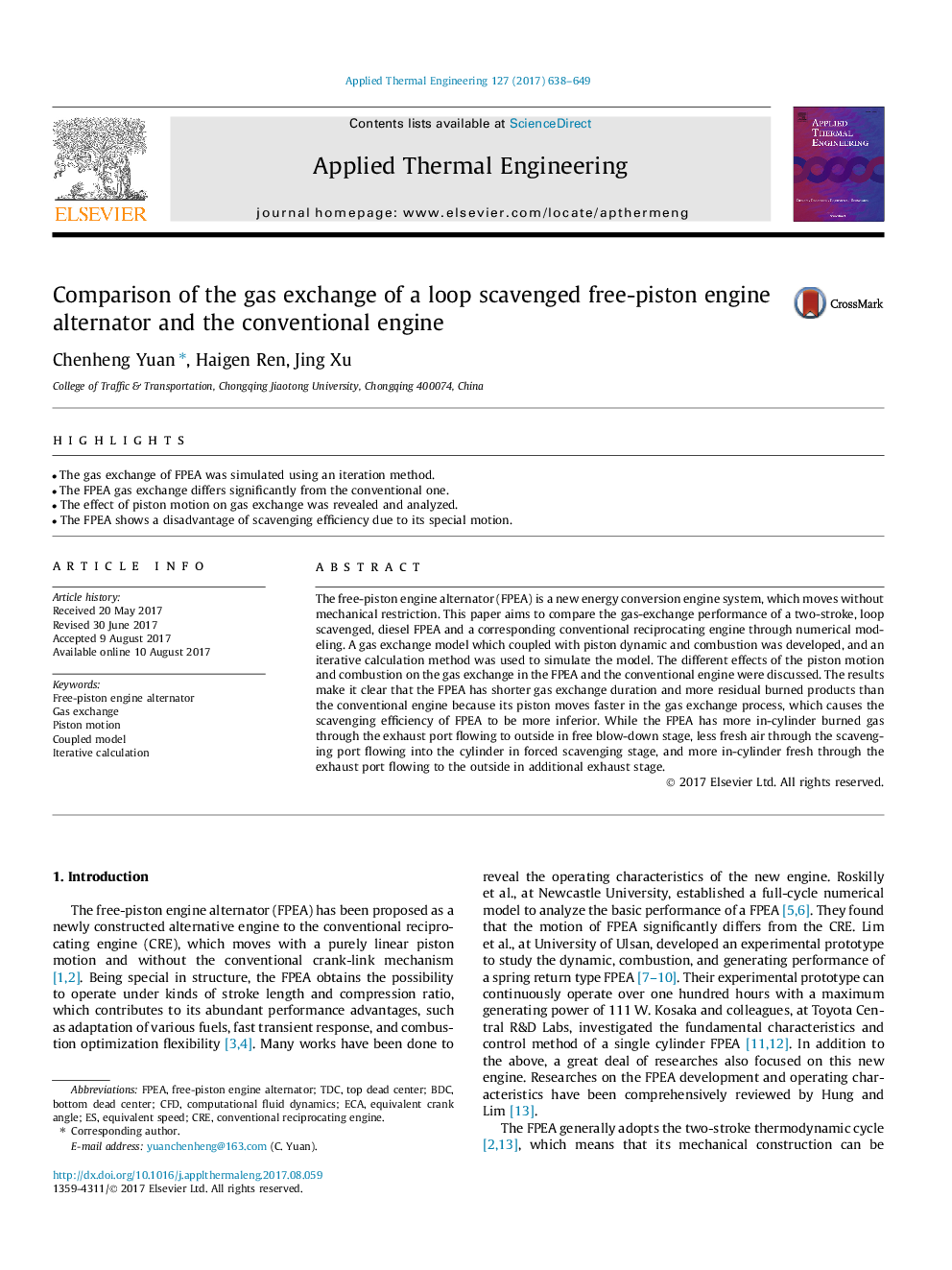| Article ID | Journal | Published Year | Pages | File Type |
|---|---|---|---|---|
| 4990748 | Applied Thermal Engineering | 2017 | 12 Pages |
Abstract
The free-piston engine alternator (FPEA) is a new energy conversion engine system, which moves without mechanical restriction. This paper aims to compare the gas-exchange performance of a two-stroke, loop scavenged, diesel FPEA and a corresponding conventional reciprocating engine through numerical modeling. A gas exchange model which coupled with piston dynamic and combustion was developed, and an iterative calculation method was used to simulate the model. The different effects of the piston motion and combustion on the gas exchange in the FPEA and the conventional engine were discussed. The results make it clear that the FPEA has shorter gas exchange duration and more residual burned products than the conventional engine because its piston moves faster in the gas exchange process, which causes the scavenging efficiency of FPEA to be more inferior. While the FPEA has more in-cylinder burned gas through the exhaust port flowing to outside in free blow-down stage, less fresh air through the scavenging port flowing into the cylinder in forced scavenging stage, and more in-cylinder fresh through the exhaust port flowing to the outside in additional exhaust stage.
Keywords
Related Topics
Physical Sciences and Engineering
Chemical Engineering
Fluid Flow and Transfer Processes
Authors
Chenheng Yuan, Haigen Ren, Jing Xu,
